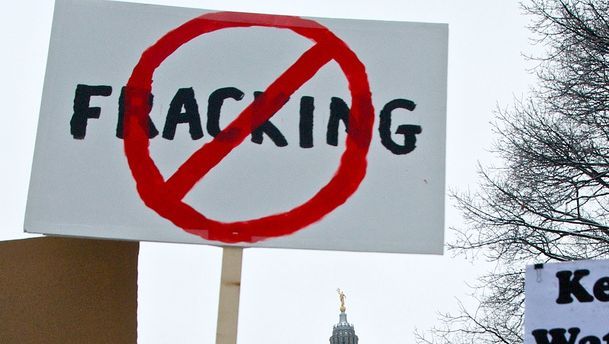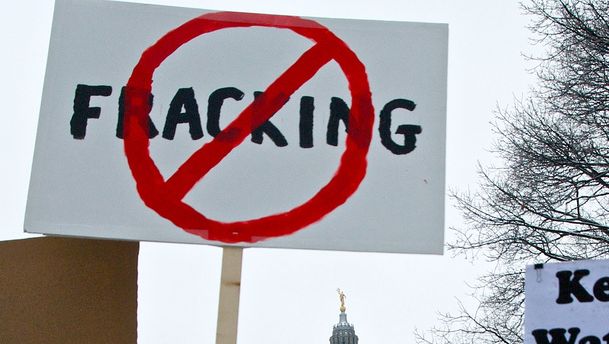WWF urges UK ban on ‘fracking’
Following a vote in France to ban hydraulic fracturing – or ‘fracking’ – WWF are urging the UK government to do the same. This is based on concerns including unknown emissions and most recently contamination of water wells near extraction sites with methane gas.

 The UK government should ban hydraulic-fracturing, following in the footsteps of France who banned the process last week, says WWF.
The UK government should ban hydraulic-fracturing, following in the footsteps of France who banned the process last week, says WWF.
They welcome the decision of French politicians to ban ‘fracking’, as it is more commonly known – the technique used to extract shale gas from rock, by injecting chemicals, water and sand into the rock-formation under high-pressure.
Following current environmental concerns around shale gas extraction WWF have called for the UK government to follow France’s lead.
Jenny Banks, Energy and Climate Change Policy Officer at WWF-UK said: “Some industry players are trying very hard to present shale gas as the solution to all our energy problems. However, the reality is that the risks associated with fracking are unknown and the greenhouse gas emissions may be worse than coal.
“The government need to follow France’s lead. Rather than extract every last cubic foot of gas from the ground, whatever the environmental consequences, [they need to] move away from greenhouse-gas emitting fossil-fuels in favour of genuinely clean and sustainable renewable-energy.”
In the latest debate surrounding shale gas extraction, new research released last week found methane levels up to 17 per cent higher than normal in water supplies close to shale gas extraction sites in Pennsylvania and upstate New York.
The report, published in the Proceedings of the National Academy of Science, found that around 85 per cent of drinking water wells within 1km of a natural gas well were contaminated.
The study found no evidence that contamination came from the chemicals used in fracking, although other studies have examined this, and says it is unclear whether methane gas had leaked from poorly cemented natural gas wells or had escaped through rock formations.
While methane gas can asphyxiate in high concentrations and has a risk of explosion, the Environmental Protection Agency in the US does not regulate the gas, and little research has been carried out into the potential health risks of drinking contaminated water.
While hydraulic fracturing is becoming increasingly prominent in the US, in the UK the process centres on Weeton, Lancashire where the first site has been proposed for exploration. However in Europe, the process is growing with exploratory drilling already underway in Poland, Bulgaria, France, Germany, the Netherlands, Sweden and the Ukraine.
And now WWF is calling on others to follow France's National Assembly – the first vote against the process. It will now need to be approved by the French Senate in June to be passed formally and it follows high-profile opposition to shale gas exploration by environmentalists and opposition Socialists.
Image: Marcellus Protest | flickr






